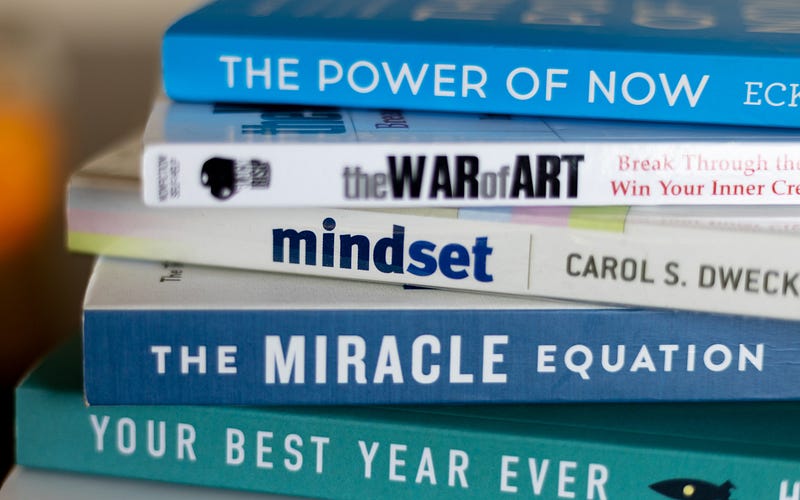The Rise of Self-Help Literature: A Modern-Day Religion
Written on
The Origins of Self-Help Literature
Let's get straight to the point: how many of you have picked up a self-help book and thought, “This is it! This will unlock my full potential”? I bet many of you have. You, me, and that guy on the subway engrossed in “How to Win Friends and Influence People” — we’ve all been there. No shame in that!
The Beginning: A Historical Perspective
To understand the phenomenon of self-help, we must journey back to its inception. Surprisingly, it wasn’t a contemporary figure like Tony Robbins or a tech innovator. The title of the first self-help book goes to none other than “Self-Help,” authored by Samuel Smiles and published in 1859. This book essentially laid the groundwork for everything that followed.
The Core Beliefs: The Mind, Body, and Spirit
Fast forward to the present day, and the self-help genre resembles a full-fledged religion. It has its own holy trinity: mind, body, and spirit. You’ve got mindfulness advocates promoting “meditation as a path to salvation,” fitness enthusiasts espousing the virtues of “6-pack abs,” and career mentors asserting, “Your job defines your purpose.”
What happened to drawing wisdom from real life experiences or, dare I say, having genuine conversations with other people?
The Principles: Guidelines for Success
Similar to any established religion, the self-help realm has its principles, often presented as a “10-step plan to success.” It’s as if by adhering to these steps, one can attain enlightenment, happiness, and perhaps even a beach house in Malibu.
Modern-Day Sermons: TED Talks and Beyond
The way we receive these teachings has evolved. It’s no longer just about reading. We now have YouTube, podcasts, audiobooks, and of course, TED Talks. Who needs a Sunday sermon when you can have Simon Sinek urging you to “start with why” right from your smartphone?
The Devoted Followers: Cult-like Fandoms
These ardent supporters aren’t merely fans; they’re true believers. Have you ever encountered a Tim Ferriss “disciple”? They can’t stop raving about “The Four-Hour Workweek” and their peculiar “no-carb, all-sardine” diet because Tim said so.
A Critical View: The Downsides
Now, let's pause for a moment. While it can be entertaining to follow modern gurus, there’s a danger here. Unlike religious texts steeped in centuries of discourse, self-help literature often reflects a singular viewpoint, and sometimes that viewpoint lacks depth.
The Harsh Reality: Not Everything Is Gold
I've witnessed friends who, after reading “The Secret,” genuinely believed they could manifest a six-figure salary by simply lounging on their couch. And let’s not even discuss the “Girl, Wash Your Face” controversy, where many learned that you can’t simply “hustle” your way out of systemic challenges. Good times indeed.
Continuing the Quest: A Balanced Approach
So, where does this leave us? It encourages us to recognize that it’s perfectly fine to seek guidance and strive for improvement. However, let’s remember that self-help should be viewed as a tool, not a creed. Utilize it, but don’t idolize it. Even the most revered texts receive new interpretations; your life should too.
Let’s Have a Conversation
I’ve shared my thoughts, and now I want to hear yours. Have self-help books transformed your life, or are they merely gathering dust on your shelf? Leave a comment and share your experiences. We're all here for an honest discussion, so don’t hold back.

Chapter 2: The Dangers of Self-Help Literature
This video explores the potential pitfalls of self-help literature and discusses whether it’s advisable for Christians to engage with these texts.
Chapter 3: Critique of Self-Help: Are They Worth It?
In this video, the speaker argues that many self-help books may not deliver the promised results, urging viewers to reconsider their reliance on these resources.
Social Media: The New Scripture
Have you noticed how quotes from self-help books flood your Instagram feed like holy mantras? One moment, it’s a quote from Buddha about letting go, and the next, it’s Brené Brown discussing vulnerability. It’s like a digital communion for the soul. And honestly, how many times have you hit ‘like’ on a post without even reading the book?